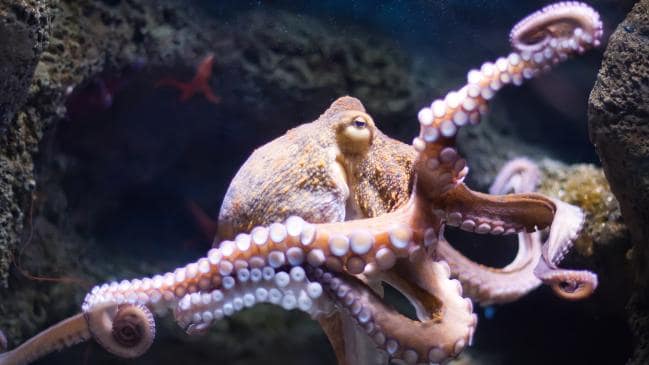Here’s what happened when scientists gave octopuses ecstasy.
The drug ecstasy, also known as MDMA or molly, can make humans feel empathetic and loving, but what happens when an octopus ingests the drug?
Researchers at John Hopkins University wanted to know and recently conducted a study, published in the Current Biology journal, to find out. They wanted to explore the link between the social behaviors of the sea creature and people.
They specifically examined the octopuses’ genes and found that animals and humans have almost identical genomic codes, particularly for the protein that transports serotonin, which regulates moods and social behaviors. Ecstasy generally travels directly to the serotonin to release more of it in the brain.
To test the effects of molly on the octopuses, the scientists put the hand-sized creatures in a beaker filled with seawater and MDMA, which was absorbed through their gills.
While octopuses normally avoid each other, they were more social while on the drug. In fact, “they tended to hug the cage and put their mouth parts on the cage,” lead author Gül Dölen said in a statement. “This is very similar to how humans react to MDMA; they touch each other frequently.”
They noted that octopuses are separated from humans by more than 500 million years of evolution and have brains that are more similar to those of snails. However, with MDMA, they were able to exhibit some of the same actions of people.
The team also explained that the brain circuits that guide social behaviors in octopuses may be suppressed by natural or other circumstances.
“Octopuses will suspend their antisocial behavior for mating, for example. Then, when they are done mating, they go into aggressive, asocial mode,” Dölen said.















